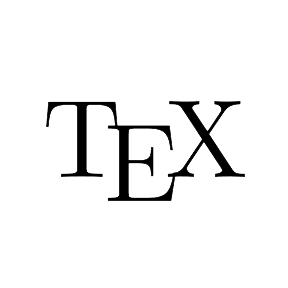Online latex compiler. You give it a link, it gives you PDF
-
Updated
Oct 21, 2024 - Python

TeX is a typesetting system created by Donald Knuth at Stanford University in 1978. TeX works by reading a source file containing text and macro definitions which instruct the TeX engine how to typeset the document. It also reads TFM files containing character widths, ligatures, and other information relevant to a particular font. After processing the source document, TeX outputs a DVI file which is a device-independent binary file containing the positions of all characters in the document. The DVI file is then supposed to be processed by a device-specific program that combines the DVI file with the necessary fonts to create something that can be sent to a printer. Nowadays it is more common to use one of the extensions to TeX, e.g. pdfTeX which outputs a pdf file instead of a DVI file.
Online latex compiler. You give it a link, it gives you PDF
Sphinx documentation Docker image with Python server and support for PlantUML and more.
generate <img src="https://render.githubusercontent.com/render/math?math={tex}">
An application that transforms LaTeX code to plain text
A LaTeX renderer for Django REST Framework
Cline-Resume is a TeX resume template inspired by the Deedy Resume and work by Damian Watracz
A cross-format package for externalization of graphics and memoization of compilation results in general
📝 A lightweight, open-source tool for writing standard LaTeX documents cleanly using Markdown-style syntax.
PyDvi is a Python library to read and process DVI (DeVice Independent) files, the native output of LaTeX. The library provides a DVI machine as a base class which can be extended by the user and plugged to a TeX daemon in order to render contents on-the-fly. Also the source code provides a DVI viewer featuring an hardware accelerated rendering o…
A micro service that allows to compile *Tex-files via HTTP
Book / Blog of different topics around MLOps engineering.
Prompty is a command prompt markup language.
This project generates a unique exam for every student given multiple pools of questions. It is in response to online university exams due to the COVID-19 pandemic.
To generate tufte-book style document for Stanford Encyclopedia of Philosophy (SEP) entries.
Printable QR labels for samples
Created by Donald E. Knuth
Released 1978